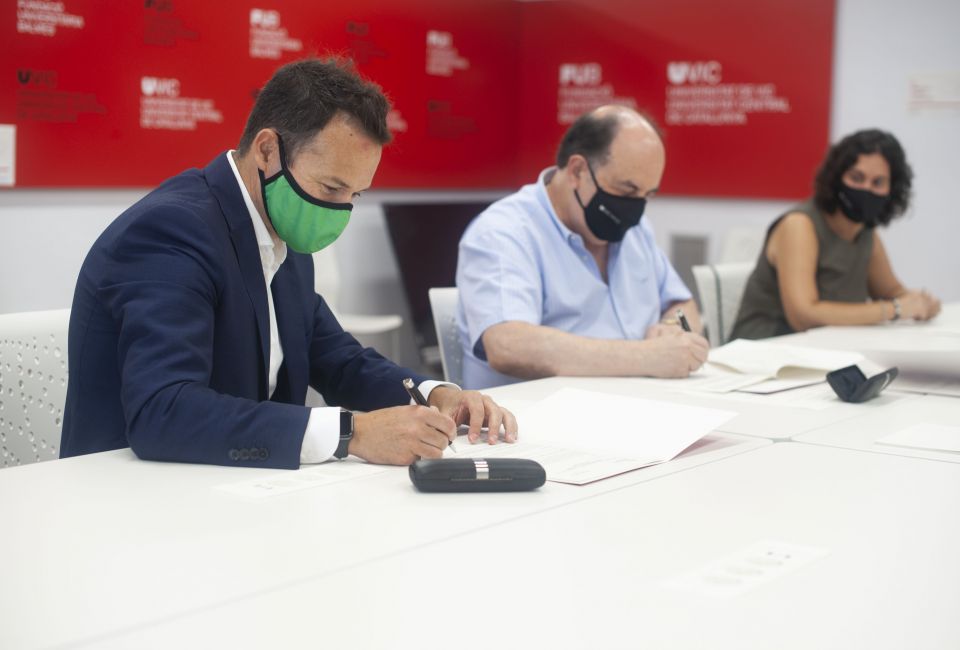UVic-UCC and Zyrcular Foods sign a collaboration agreement
The agreement opens the door to new opportunities for collaboration between this company and the CT BETA

The University of Vic – Central University of Catalonia (UVic-UCC) and the company specialized in the research and production of alternative protein foods Zyrcular Foods will collaborate to train students of the degree in Human Nutrition and Dietetics in the field of the alternative protein. The agreement is part of the will of the company based in Seva to weave synergies with local academic institutions, share knowledge and be a business asset also for undergraduate and master’s students studying in Osona.
The agreement also opens the door to new opportunities for collaboration between this company and the BETA Technological Center in the field of bioeconomy and sustainable rural development, thus consolidating initiatives that have been developed during the last year. On the one hand, Zyrcular Foods will have a channel of direct access to the world of research and innovation in areas essential to its activity and will be able to participate in the new proposals of European projects. On the other hand, the technology center will gain capacity to incorporate the private sector into international consortia for large-scale European projects. For CT BETA, it means, among other things, being able to have industries where to implement pilot tests in real conditions.
This collaboration will have an initial duration of two years. The event was attended by the rector of UVic-UCC, Josep Eladi Baños, the dean of the Faculty of Health and Welfare Sciences, Míriam Torres, and the CEO of Zyrcular Foods, Santi Aliaga. Also present were Sergio Ponsá, director of CT BETA, and Anna Vila, coordinator of the degree in Human Nutrition and Dietetics.
Santi Aliaga celebrated the new relationship with UVic-UCC and highlighted “the capacity and possibilities of the BETA Technology Center”. The CEO of Zyrcular Foods added that the company has a challenge which is to “combine nutrition, dietetics, catering and food and this should lead us to look for new partners”. Aliaga remarked that for them it is strategic and very important “to be located on the plain of Vic, where we have a plant made with 360º sustainability criteria, and close to a university like yours”. Its goal is to start generating teams of professionals who will have to generate new knowledge in nutrition and food tomorrow, because food “will have to be conceived in a global and sustainable way,” he said.
